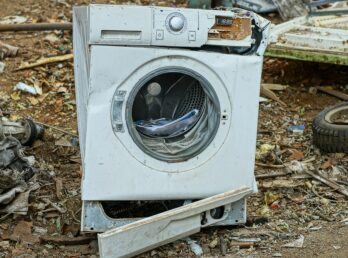Can Franchisors Be Liable For Their Franchisees? articles
Date
9 Sep 2019
Related Expertise
Why would a franchisor be liable anyway?
After all, franchisees are separate business entities and a franchisor would not expect to have any liability for the franchisees’ trading activities. In simple terms, franchisees trade under a licence arrangement and pay fees to the franchisor – how franchisees conduct their businesses and meet legal obligations is not the responsibility of the franchisor.
- Franchisees trade under their own name and at/for their own risk/reward.
- Franchisees are independent business operators although acting under a franchise.
- Franchisors may find their franchise brand at risk in cases where franchisees do not meet legal obligations.
- A franchisor will be concerned as to the risk of brand damage by the actions of franchisees – poor customer service/brand damaging actions and any resulting publicity.
- Franchisees who cause brand damage will suffer the adverse consequences under the terms of the franchise agreement. But brand damage should be the franchisor’s only risk.
What if a franchisee does not comply with business contracts/business laws?
Like all business owners, franchisees will have liabilities under leases, finance agreements, tax/GST/PAYE obligations, employee contracts, products and services supplied and for product safety.
- Most business agreements – leases/finance/supplier arrangements – do not impose any liability on a franchisor. The franchisor is not a party and likely is not involved at any level.
- Product safety issues can impose risks on franchisors.
- If the actions of the franchisee are contrary to franchise requirements/supplier advice and the franchise system manuals and legal regulations or is related to product safety issues (e.g. foodstuff contamination) it is unlikely that a franchisor will suffer any liability, although they will suffer brand/reputation damage.
Risk and liability may exist for a franchisor if the franchise system adhered to by the franchisee is faulty resulting in product safety issues, etc.
Is the franchisor liable to a franchisee’s employees?
There have been recent and well publicised examples where individual franchisees have been prosecuted for not providing/paying minimum entitlements to employees (e.g. holiday pay/shift allowances/meal allowances and breaks/minimum wage rates).
This is widely and properly seen as exploitation – these cases have had high profile and will have been damaging to the brands concerned.
Employment Relations Act amendments in 2016 have given MBIE labour inspectors increased powers to deal with worker exploitation including by way of increased penalties and, importantly, the ability for offices of employers to be held liable for an employer’s breach of minimum employment standards.
Anyone, including a company, in a position to exercise significant influence over the management or administration of an employer could be prosecuted for a failure by an employer to meet minimum employment entitlements.
A franchisor does exercise significant influence over a franchisees business – its management, administration and operation – that is the essence of a franchise system.
This has not been decided on by any court, but franchisors do risk that in exercising control over a franchisee (under the franchise agreement) the franchisor will be liable for failures by a franchisee to meet minimum employment standards/entitlements. Franchisors may face prosecution.
MBIE inspectors have expressed interest in the extent to which individual franchise systems may have examples of failures by franchisees to provide minimum employment standards and entitlements – and the extent to which the franchisors have or can exercise significant influence over the franchisee.
It may seem speculative, but we recommend that franchisors address compliance issues with franchisees – review what current systems are for ensuring compliance with employment laws, how effective those systems are and how they could be improved.
Subscribe
Get insights sent direct to your email.





















